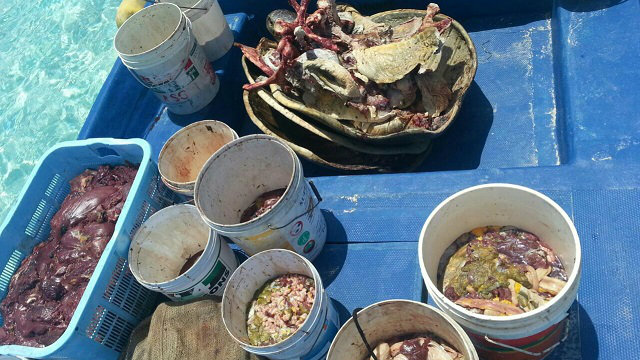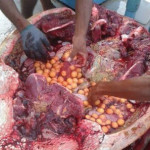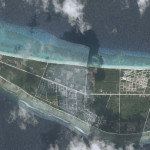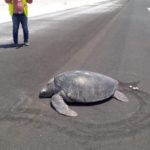Some 13 Maldivians were briefly detained on Tuesday for killing at least three sea turtles, a protected animal in the Maldives. They were caught in the process of extracting oil from turtles.
The 13 were arrested on an uninhabited island, Olhatholha, south central Laamu Atoll. They were caught with three turtle shells, a large number of eggs and buckets of turtle meat.
Ali Shifaz, the president of the Maamendhoo Island council, said the 13 were questioned and released. The group included a minor.
Killing of sea turtles is punishable by a fine of MVR100million (US$6million).
Cases of killing protected marine life are seldom reported, and fines are rarely imposed.
However, photos of Maldivians and foreigners harming marine life are now being shared more frequently on social media.
In 2014, environmental group EcoCare expressed concern over a photo showing a man extracting eggs from a dead female turtle.
“We are outraged by the lack of adequate enforcement measures in place by relevant authorities to protect these marine species in the country,” the organization said in a statement.
Five species of turtles are found in the Maldives. Four are known to nest here. Sea Turtles are classified as critically endangered species globally.
Maeed Zahir of EcoCare said he is unaware of any instances where the government had imposed fines for killing protected species.
“Similar cases have occurred and people have been taken into custody but we never know what’s going to happen next, if the people are really fined or not, we don’t know,” he said.
Sea turtles are protected only on paper, he said, noting there are no clear procedures on handling reports of misconduct.
“Our biggest concern is that the Ministry of Fisheries and Agriculture is tasked with protecting marine turtles, when the mandate should be under the Environmental Protection Agency (EPA). When something happens, who investigates? The police? The EPA? Or the ministry? The problem is that there are no uniform policies and that’s what we need, uniform policies to be enforced.”
The EPA was not responding to calls at the time of going to press.
According to Haveeru, the EPA in 2014 investigated a case of turtle killing. It is not clear if a fine was imposed.
Sea turtles were first protected for 10 years in the Maldives in 1995. The moratorium on killing sea turtles was extended for another 10 years in 2006, and is due to expire in January, 2016.



















